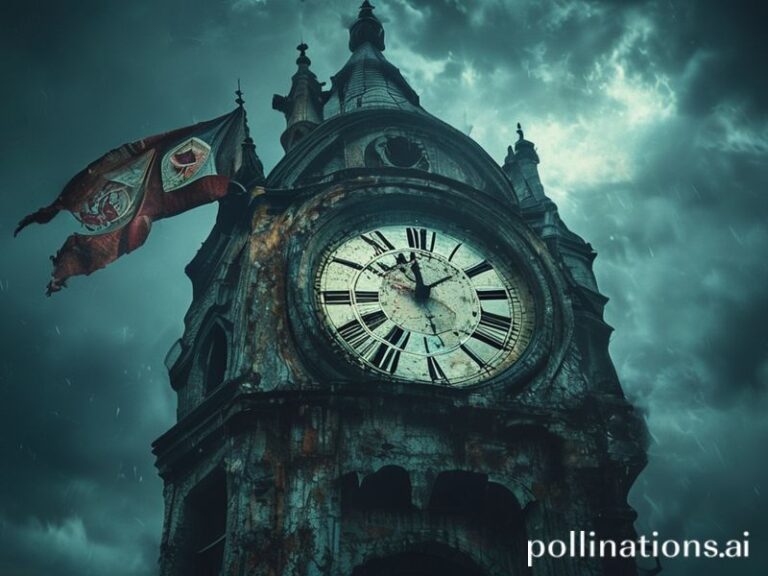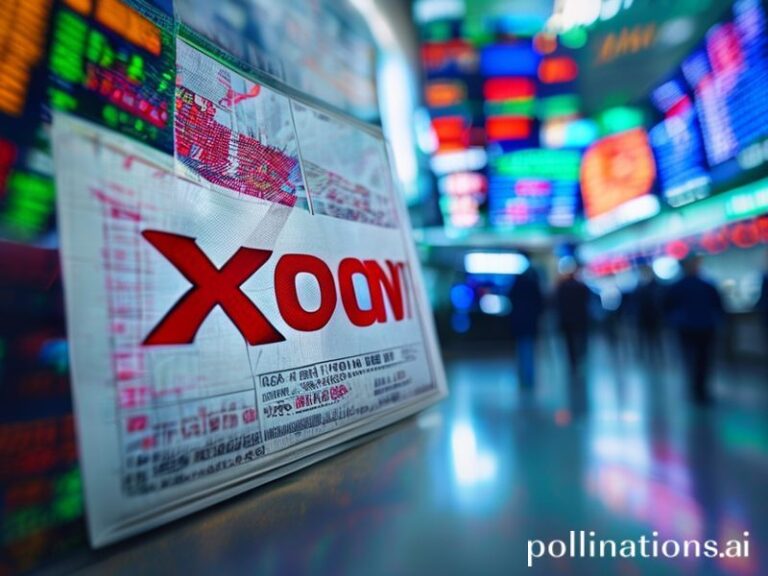Benfica FC: Europe’s Last Imperial Machine, Now Trading on the NYSE of Broken Dreams
Lisbon, Portugal – On paper, Benfica is merely a football club—113 years old, 83 major trophies, a seagull-shit-coated stadium squatting on the edge of the Tagus. In practice, it is one of the last functioning imperial machines still headquartered in Europe, a late-capitalist relic that exports talent the way Britain once exported missionaries and smallpox. Every August, global television audiences tune in not to watch the Eagles soar but to see which raw teenager will be flogged to a Premier League oligarch before the leaves turn. It’s less sport than a quarterly earnings call with choreography.
The numbers are grimly comic. Since 2010, Benfica has generated roughly €1.2 billion in player sales—roughly the GDP of Fiji, if Fiji specialized in hamstrings and Instagram followings. João Félix left for €126 million in 2019, a sum large enough to purchase 630 Portuguese nurses, none of whom can nutmeg a centre-back. Enzo Fernández’s January 2023 departure to Chelsea paid for a new training complex, two sports-science PhD programs, and, rumor has it, a tasteful marble statue of the agent who brokered the deal. The club’s academy, Seixal, has become the Hogwarts of late-stage neoliberalism: wand-waving scouts pluck 12-year-olds from the Cape Verdean sand and teach them to cast spells with their weaker foot, all while whispering the sacred incantation: “Release clause.”
Internationally, the implications are delightfully dystopian. The Portuguese league functions as an offshore assembly line for the cartels of emotion we call Big Football. Manchester City, PSG, and Barcelona aren’t mere consumers; they’re the end-stage capitalists in a human supply chain that begins on flood-lit pitches next to cork forests. Meanwhile, Lisbon’s tax authorities look the other way, content to collect VAT on replica shirts sold to tourists who think “Eusébio” is a type of custard tart. Everyone wins except the supporters, who endure the existential whiplash of cheering for a jersey that will inevitably be laundered in the Premier League rinse cycle by Christmas.
The geopolitical kicker? Benfica’s stock is listed on the Euronext exchange under the ticker SLB, making it the only publicly traded football club that doubles as a sovereign wealth fund for a nation too small to host Eurovision without borrowing speakers from Spain. Qatar’s sovereign fund owns 16%. American vulture funds circle overhead like polite buzzards. Last month, a Singaporean blockchain start-up announced a fan-token partnership, allowing armchair ultras in Jakarta to vote via app on which color the captain’s armband should be—democracy reduced to a micro-transaction.
Yet the darkest joke is that none of this feels unusual anymore. In an era when nation-states outsource policy to Netflix and central banks consult astrology, a Portuguese football club moonlighting as a hedge fund is just another Tuesday. The players themselves understand the farce: they celebrate goals by pointing to the sky, not for divine gratitude but because that’s where the drones filming their personal-brand content happen to be hovering. The ultras still light flares, but mostly for the aesthetic—pyrotechnics perform well on vertical video.
And so the carousel spins. This summer another crop of adolescents will be harvested, shrink-wrapped, and FedExed to England with a “fragile” sticker slapped over their dreams. The fans will sigh, light another cigarette, and mutter the club’s unofficial motto: “Sempre existiremos”—we will always exist. Which, translated for the global audience, means: We’ll be back next season, same as ever, ready to be emotionally liquidated for your entertainment.
In the end, Benfica isn’t just a football club; it’s the last honest mirror we have left. It shows us exactly what we’ve become: a world that can monetize wonder, package nostalgia, and still manage to lose on aggregate to a team from Prague. The joke’s on us, and the punchline is delivered in Portuguese—subtitled for international viewers, of course.







